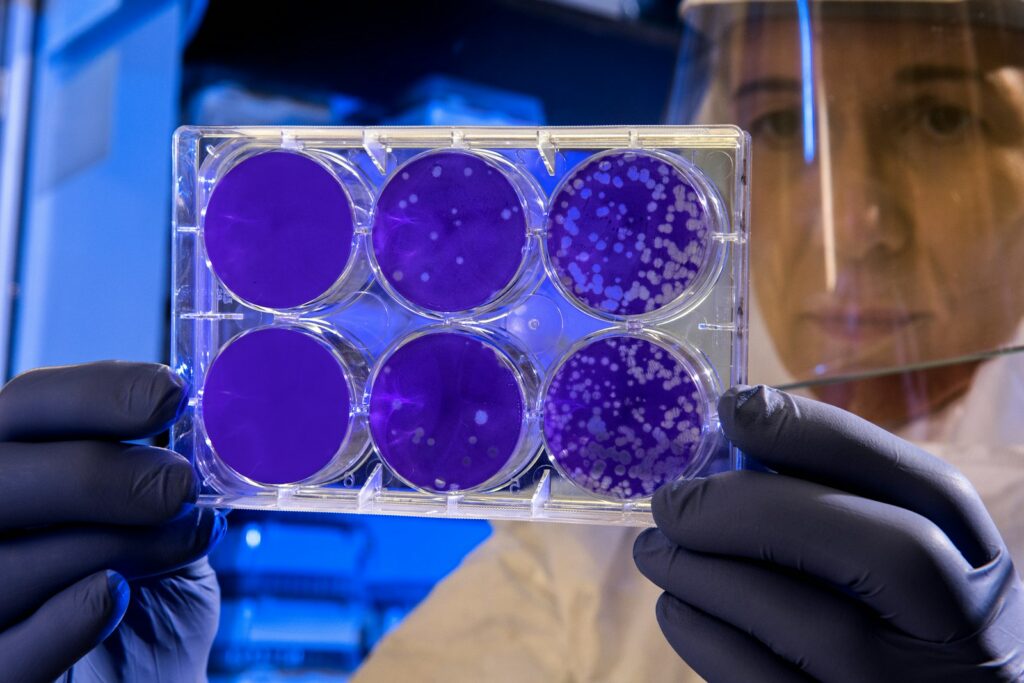Introduction
As you may already know, fermentation is an enzymatic process involving bacteria, yeast, or fungi in which they metabolize organic compounds especially carbohydrates into alcohol, gases, or acids.
The Role of Fermentation in Modern Industry
Fermentation has evolved from traditional uses to one of the most important processes in the present epoch across sectors. Although this is a wide expansion, it offers not only improvements in the quality of fermented products but also opportunities to develop new applications for the challenges of the present-day world, like sustainable development and health.
The Evolution of Fermentation Techniques
Thus, techniques used in the process of fermentation have undergone a progressive change with time. From the natural and random practice of fermentation to the managed practice performed in factories the process has evolved due to the improved knowledge in the field of microbiology and biochemistry. The future of fermentation science is shaping up as the centuries-old process of fermentation is enhanced with new innovations and technologies to create a variety of products.
Traditional vs. Modern Fermentation
The predecessors of the modern technological approaches contained their fermentation in nature and its unpredictable nature, thus offering low-quality results. Modern fermentation methods differ from traditional methods by using specific bacteria, creating specific conditions, and using advanced equipment for monitoring progress.
The Rise of Industrial Fermentation
Large-scale fermentation, on the other hand, developed in the early to mid-20th century and drastically transformed the production of antibiotics, enzymes, and many other products. Currently, industrial fermentation is a crucial part of biomanufacturing that plays the most critical role in the large-scale production of different biomaterials and chemicals.
Emerging Trends in Fermentation Science
As the basic foundations of fermentation science evolve several trends are defining the future of this concept. These trends are indicative of new directions and emerging from the need to meet efficiency and sustainable requirements in fields of today’s economy.
Sustainable Fermentation Practices
Sustainability is one of the significant factors in the prospect of fermentation science. Owing to the various concerns such as carbon footprints, waste production, and utilization of renewable sources, environmentally friendly approaches to conducting the fermentation processes have been made.
Waste-to-Value Fermentation
Among them, it must be highlighted the use in the fermentation process of agricultural and food waste in order to obtain valuable products. This is not only unconventional but also helps in a way to eliminate the use of conventional raw materials hence promoting a circular economy.
Carbon Capture and Utilization
One other innovative application sector is the fermentation for carbon capture utilization set known as CCU. Microbes are genetically designed to fix sequestered CO2 to manufacture biofuels, biopolymers, and numerous other commercial products, as an efficient replacement for fossil resources.
Precision Fermentation
Precision fermentation is an emerging technology that processes precise and highly efficient production of specific compounds by using engineered microorganisms. This has the potential of changing how proteins enzymes and other bioactive compounds are produced.
Designer Microbes for Targeted Production
With the development of synthetic biology and genetic engineering techniques, it has become possible to develop racing-tuned microorganisms for targeted fermentation applications and processes. It is possible to make the microbes produce high-value-added products such as the proteins used in the formulation of animal feed and other related supplements with higher yields and in purer forms.
The Role of Artificial Intelligence (AI)
AI and ML are gradually being applied to fermentations. These technologies also empower researchers to design better fermentation conditions, predict scenarios, and finally control and even automate intricate processes with increased yield at relatively lower costs.
Fermentation in Pharmaceuticals
The use of fermentation as a tool in the pharmaceutical industry has recently increased rapidly as a means of drug synthesis and production. Fermentation significantly has proved to be economical and efficient when it comes to large-scale production of multi-component biologics such as vaccines, antibiotics, and monoclonal antibodies.
Biologics and Biosimilars
The actual process of fermentation is very important in the manufacturing of biologics which are products that have been cultured from living microorganisms. There is an increasing capacity to manufacture biosimilars- biologic drugs that are similar to the initially approved ones but cheaper.
Fermentation in Personalized Medicine
Personalized medicine is a concept that has a clear connection with the further development of the fermentation science. This opportunity of fine-tuning microbial strains for the synthesis of targeted therapeutic products broadens the scope of the application of microbial synthesis.
Applications of Fermentation Science

Looking at the future of fermentation science, the emphasis should not be on the development of novel technologies alone, but on the practical application of the technologies designed. The following are some examples of the major areas where there is a great application of fermentation science.
- Food and Beverage Industry
Sul fermentation still enjoys a very important place in the food and drink processing area. Despite this, its applications are increasingly driven by the consumer’s push for healthier, sustainable, and unique products.
- Probiotics and Functional Foods
Another fantastic area in the production of fermented products is probiotics and functional foods production. Fermentation helps to improve the nutritive value of foods, increase absorption of nutrients, and thus create new functional foods.
And also,
- Craft Beverages and Artisan Foods
Craft beer, kombucha, and artisan cheeses are all examples of craft beverages many of which are created through fermentation. An emerging trend of customers preferring products with an individual and craft approach to production has contributed to the development of new methods by fermentation scientists.
- Biofuel Production
Thus, the process of fermentation is proving valuable for the creation of next-generation biofuels. The use of enzymes in the distillery sector for producing bioethanol, biobutanol, and other biofuels through fermentation can replace fossil fuels and result in a reduction of greenhouse gas emissions.
- Second-Generation Biofuels
Industries are gradually adopting second-generation biofuels, which are sourced from feedstock other than food crops. Researchers are enhancing fermentation procedures to produce biofuels from nitrocellulose feedstocks, including agricultural waste and wood splinters.
- Pharmaceutical Development
The industry of pharmacy has been using fermentation in the production of antibiotics and many more drugs for many years. Given this, we can expect even wider possibilities in the future due to new fermentation-based remedies and production technologies.
- Antibiotic Production
Nonetheless, due to synthetic manufacture, even antibiotics need fermentation. Fermentation-based production also helps in the consistent and uninterrupted production of these life-saving drugs and at the same time, introduction of the new antibiotics to fight against drug-resistant strains.
- Fermentation in Vaccine Production
The role of fermentation also plays an essential role in the production of vaccines. The fast scale-up of production that the biosimilars acquired utilizing the fermentation procedures is valuable during the COVID-19 pandemic and will develop in the future.
Challenges and Opportunities in Fermentation Science
Of course, like with any other novel and dynamically developing branch of knowledge, fermentation science has several issues. But these are the issues that also offer new opportunities and ways to advance in today’s global environment.
Scaling Up Fermentation Processes
The most daunting task when it comes to fermentation processes is the up-scaling process from the laboratory level to the pilot scale and commercial scale. To make the product commercially viable, producers must address challenges such as consistency, contamination, and yield.
Regulatory and Compliance Issues
Compared to other industries, regulators heavily oversee fermentation processes, especially within the food and beverage and pharmaceutical industries. Sustainably steering through these regulatory terrains during technology advancement is a critical issue that fermentation scientists continue to face.
The second hypothesis is that there are opportunities in Fermentation Science that are of equal importance to the other sciences.
However, there are several opportunities for the growth and development of fermentation science as presented below.
Interdisciplinary Collaboration
Such interdisciplinary approaches between microbiome, engineering, and data analytics are now paving the way for the next generation of ideas. Covariates characteristics include the qualifications of the staff, wherein interdisciplinary teams are in a better place to solve intricate problems and design options.
Investment in Research and Development
Fermentation science is benefitting from higher levels of investment in research and development. It’s an exciting time for governments, private companies as well as educational institutions to take notice of the possibilities that lie in fermentation to spur economic development and growth.
The Role of Fermentation Scientists in the Future

The knowledge and innovation of fermentation scientists anchor the future of fermentation science. The dynamics of this field developing these professionals shall feature prominently in determining the direction of this industry in the future.
Skills and Education for Future Fermentation Scientists
Currently, the position of a fermentation scientist is changing, and apart from a solid knowledge of microbiology and biochemistry, one has to understand engineering principles as well. Along with technical know-how, one must have a good grounding in data mastery, process problem-solving, and project management.
Lifelong Learning and Professional Development
This brings another important factor into play, particularly in light of the fast developments in fermentation science; one has to continue learning throughout his or her career. Some of the challenges that impact fermentation scientists include the need to update technologies, methods, and shifts& regulations.
Frequently Asked Questions (FAQs) about The Future of Fermentation Science
What is fermentation science?
Fermentation is the study of the conversion of organic compounds into alcohol, acids, or gases through biochemical reactions by the action of suitable microorganisms. People use this in the food and beverage industry, the pharmaceutical industry, the biofuel industry, and others.
What are the latest trends in fermentation science?
Some of the recent trends include sustainable fermentation, precision fermentation, and artificial intelligence in the fermentation process.
How does fermentation impact the food and beverage industry?
People widely use fermentation as a key process for producing numerous food and beverage items, such as bread, yogurt, beer, and wine, among others. It is also critical in the development of probiotics as well as functional foods.
What are the challenges in scaling up fermentation processes?
Some of the challenges include stubbornness of consistency, controlling cross contamination and lastly controlling yields and scale-up from the laboratory scale to the pilot scale.
What is precision fermentation?
Engineers use precision fermentation to synthesize particular chemical compounds with great accuracy and effectiveness, commonly applying this process in the production of proteins and other high-value products.
Conclusion of The Future of Fermentation Science
Fermentation science is promising and has the possibility in the future. Fermentation science is an exciting and important field of study because it provides solutions to complicated problems affecting the world today such as sustainable production, health, and resource utilization. As science advances, as more and more professionals from other fields tap into the world of fermentation, and as more and more companies and consumers demand products that aren’t bad for the planet or our bodies, the value of a fermentation scientist is going to skyrocket. The ‘industrialization of fermentation’ backed by innovation and overcoming of challenges holds promise for making a positive difference in the other sectors as well.
Whether you are a new crop or a veteran of this job market, getting to know these new trends and technologies will be important for your further practice in this progressively developing field.
